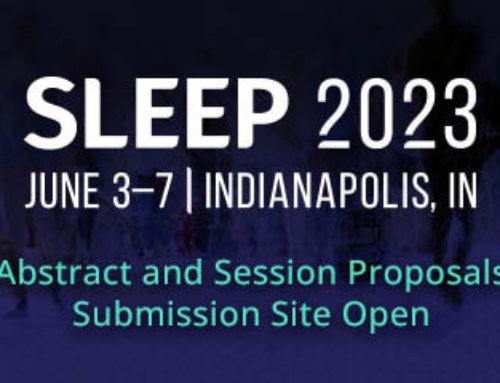WESTCHESTER, Ill. – Chronic sleep restriction has a negative effect on a person’s cardiac activity, which may elevate the risk of cardiovascular disease and mortality, according to a research abstract that will be presented Wednesday at SLEEP 2007, the 21st Annual Meeting of the Associated Professional Sleep Societies (APSS).
The study, conducted by Siobhan Banks of the University of Pennsylvania School of Medicine, was based on preliminary analyses of 39 subjects, each of whom participated in a laboratory-controlled chronic sleep restriction protocol. The subjects underwent two nights of baseline sleep followed by five hours of sleep restriction. The results showed a statistically significant decrease in the heart rate variability after five nights of sleep restriction.
“A reduction in the heart rate variability has been reported in several cardiological and non-cardiological diseases,” said Banks. “If our finding is sustained by a larger group and further analysis, it may suggest why short sleep duration is associated with a heightened risk of cardiovascular disease and mortality.”
The amount of sleep a person gets affects his or her physical health, emotional well-being, mental abilities, productivity and performance. Recent studies associate lack of sleep with serious health problems such as an increased risk of depression, obesity, cardiovascular disease and diabetes.
Experts recommend that adults get between seven and eight hours of sleep each night to maintain good health and optimum performance.
Those who think they might have a sleep disorder are urged to discuss their problem with their primary care physician, who will issue a referral to a sleep specialist.
The annual SLEEP meeting brings together an international body of 5,000 leading researchers and clinicians in the field of sleep medicine to present and discuss new findings and medical developments related to sleep and sleep disorders.
More than 1,000 research abstracts will be presented at the SLEEP meeting, a joint venture of the American Academy of Sleep Medicine and the Sleep Research Society.
The four-day scientific meeting will bring to light new findings that enhance the understanding of the processes of sleep and aid the diagnosis and treatment of sleep disorders such as insomnia, narcolepsy and sleep apnea.
CONTACT:
Jim Arcuri
(708) 492-0930, ext. 9317
jarcuri@aasm.org
# # #








